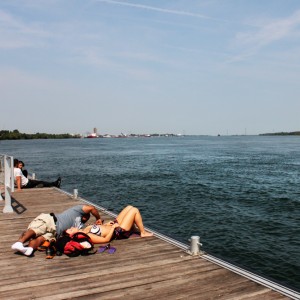The Stream, September 10: Bangladesh Fights Against River Erosion
The Global Rundown |
Bangladesh plans to reclaim river sediment to combat erosion and resettle displaced communities. The below-average monsoon in India is testing the country’s government, while the drought in Europe could be a glimpse of the future, scientists say. An oil company’s water license was revoked in British Columbia due to environmental and First Nation concerns. Researchers in Indiana are calling for a better understanding of water use in the United States’ rivers.
“Extreme temperatures and dry conditions as observed this year are likely to increase in frequency and severity over the coming decades, posing great challenges to our societies.”–Jürgen Vogt, a researcher at the European Drought Observatory, on the heat wave and drought that affected much of Europe this summer. (Guardian)
By The Numbers |
8,000 hectares Area of land lost to river erosion each year in Bangladesh, where the government plans to reclaim sediment and resettle communities displaced by erosion. Reuters
1.4 million cubic meters Annual allotment of water that a Chinese oil and gas company was licensed to take from Tsea Lake in British Columbia. The license was revoked by the provincial environmental appeal board, which ruled that the water withdrawals could negatively affect the environment and violated First Nation treaty rights. Vice News
Science, Studies, And Reports |
During the summer, nearly all of the Wabash River’s water in Indiana is withdrawn, used in some form, and then returned to the river before it reaches the Ohio River, according to a study by researchers at Purdue University. The study’s authors say it demonstrates the need to better understand how and when water is being used in U.S. rivers on a large, watershed scale. Purdue University
On The Radar |
India’s second drought in as many years is testing the government of Narendra Modi, which some farmers say has done little to help them. Overall, monsoon rainfall is 14 percent below normal this year, though in some regions of the country it is more than 40 percent below average. Reuters
A news correspondent for Circle of Blue based out of Hawaii. She writes The Stream, Circle of Blue’s daily digest of international water news trends. Her interests include food security, ecology and the Great Lakes.
Contact Codi Kozacek






Leave a Reply
Want to join the discussion?Feel free to contribute!